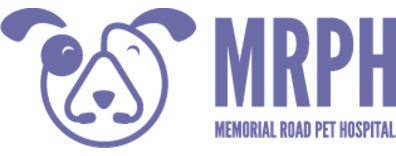Memorial Road Pet Hospital
Puppies explore their world by putting things in their mouths. In addition, puppies are teething until they’re about 6 months old, which usually causes them some discomfort. Chewing not only facilitates teething, but also makes sore gums feel better. While it is perfectly normal for puppies to chew on furniture, shoes, and shrubbery, these behaviors can be a problem for you, and your puppy will not magically “outgrow” this behavior as he matures. However, by shaping your puppy’s behavior and teaching him which objects are acceptable chew toys and which are not, you are able to minimize chewing problems past 6 months of age.
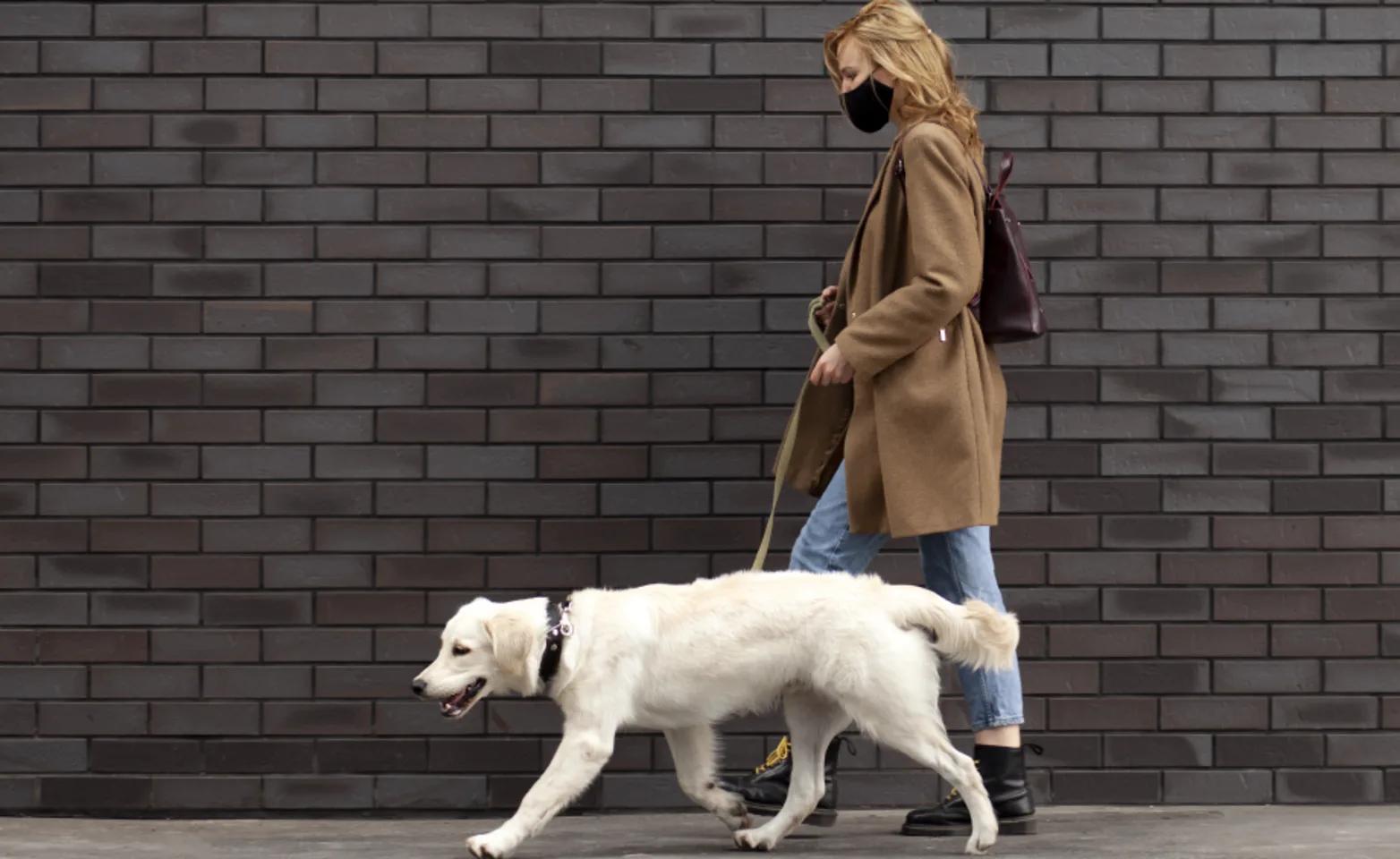
Discouraging Unacceptable Behavior
It is virtually inevitable that your puppy will, at some point, chew up something you value. This is part of raising a puppy! You can, however, prevent most problems by taking the following precautions:
Minimize chewing problems by puppy-proofing your house. Put the trash out of reach inside a cabinet or outside on a porch, or buy containers with locking lids. Encourage children to pick up their toys and don’t leave socks, shoes, eyeglasses, briefcases, cell phones, or TV remote controls lying around within your puppy’s reach.
If, and only if, you actually catch your puppy chewing on something he shouldn’t, interrupt the behavior with a loud noise, then offer him an acceptable chew toy instead. Play with him lavishly when he takes the toy in his mouth.
Make unacceptable chew items unpleasant to your puppy. Furniture and other items can be sprayed with Bitter Apple or other taste aversives to make them unappealing (see our handout: “Aversives for Dogs”).
Don’t give your puppy objects to play with that can cause confusion, such as old socks, old shoes, or old children’s toys that closely resemble items that are off-limits. He cannot tell the difference!
Closely supervise your puppy. Don’t give him the chance to go off by himself and get into trouble. Use baby gates, close doors, or tether him to you with a six-foot leash so you can keep an eye on him (see our handout: “The Training Tether”).
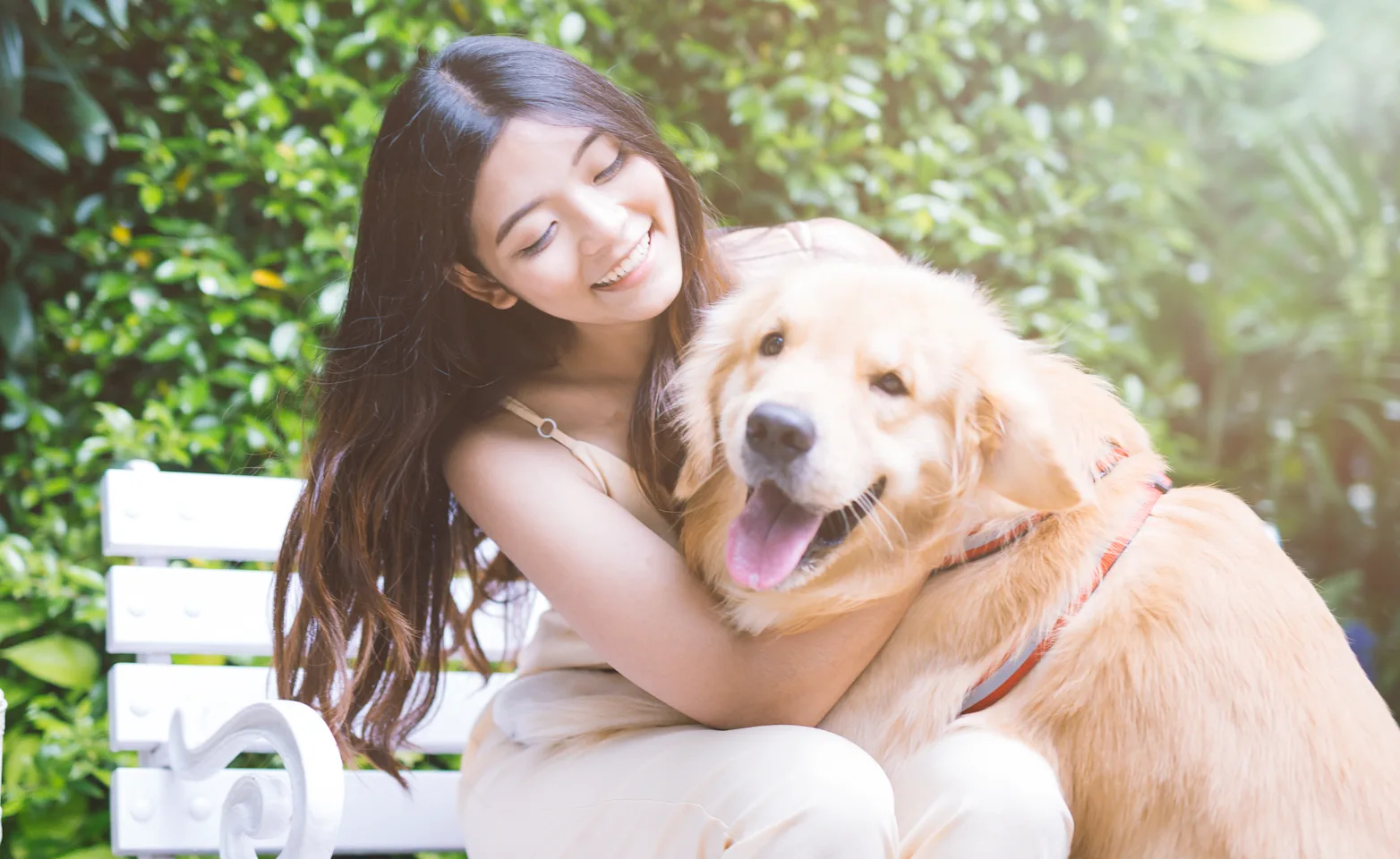
Discouraging Unacceptable Behavior (continued)
When you must be gone from the house, confine your puppy to a small, safe area, such as a laundry room. You may also begin to crate train your puppy (see our handout: “Crate Training Your Dog”). Puppies under 5 months of age should not be crated for longer than 4 hours at a time, as they may not be able to control their bladder and bowels longer than that.
Make sure your puppy is getting adequate physical activity. Puppies left alone in a yard do not play by themselves. Take your puppy for walks and/or play a game of fetch with him as often as possible.
Your puppy learns what is appropriate in the house when he is in the house with you, so give your puppy plenty of people time.
Take your puppy to an obedience class to teach him important commands, like “leave it.”
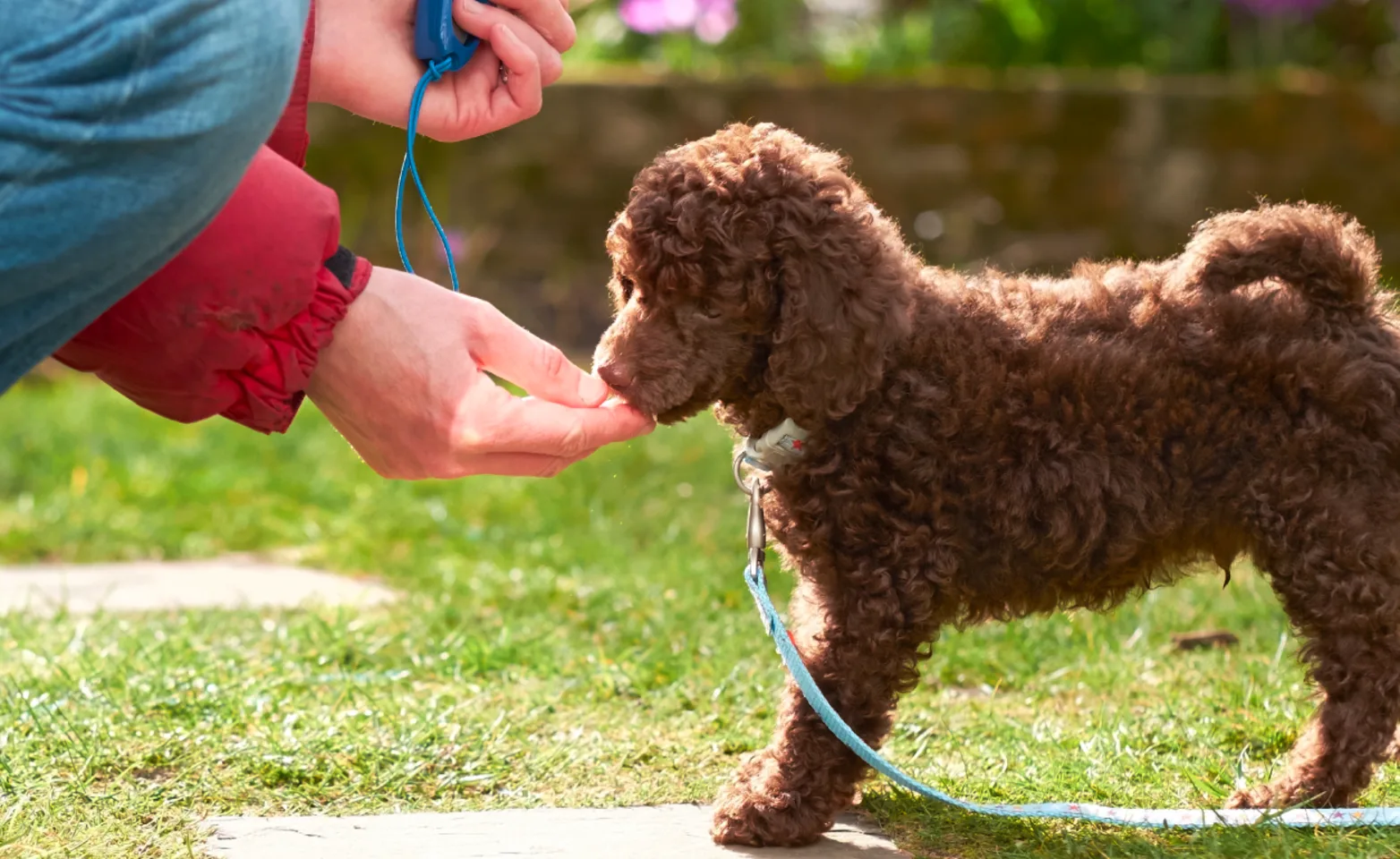
Encouraging Acceptable Behavior
Provide your puppy with many appropriate toys. Rotate your puppy’s toys. Puppies, like babies, are often more interested in unfamiliar or novel objects. Put out four or five toys for a few days, then pick those up and put out four or five different ones.
Experiment with different kinds of toys. When you introduce a new toy to your puppy, watch him to make sure he won’t tear it up and ingest the pieces.
Consider the various types of toys that can be stuffed with food. Putting tidbits of food inside chew toys focuses your puppy’s chewing activities on those toys instead of on unacceptable objects.
If your puppy is teething, try freezing a wet washcloth for him to chew on.
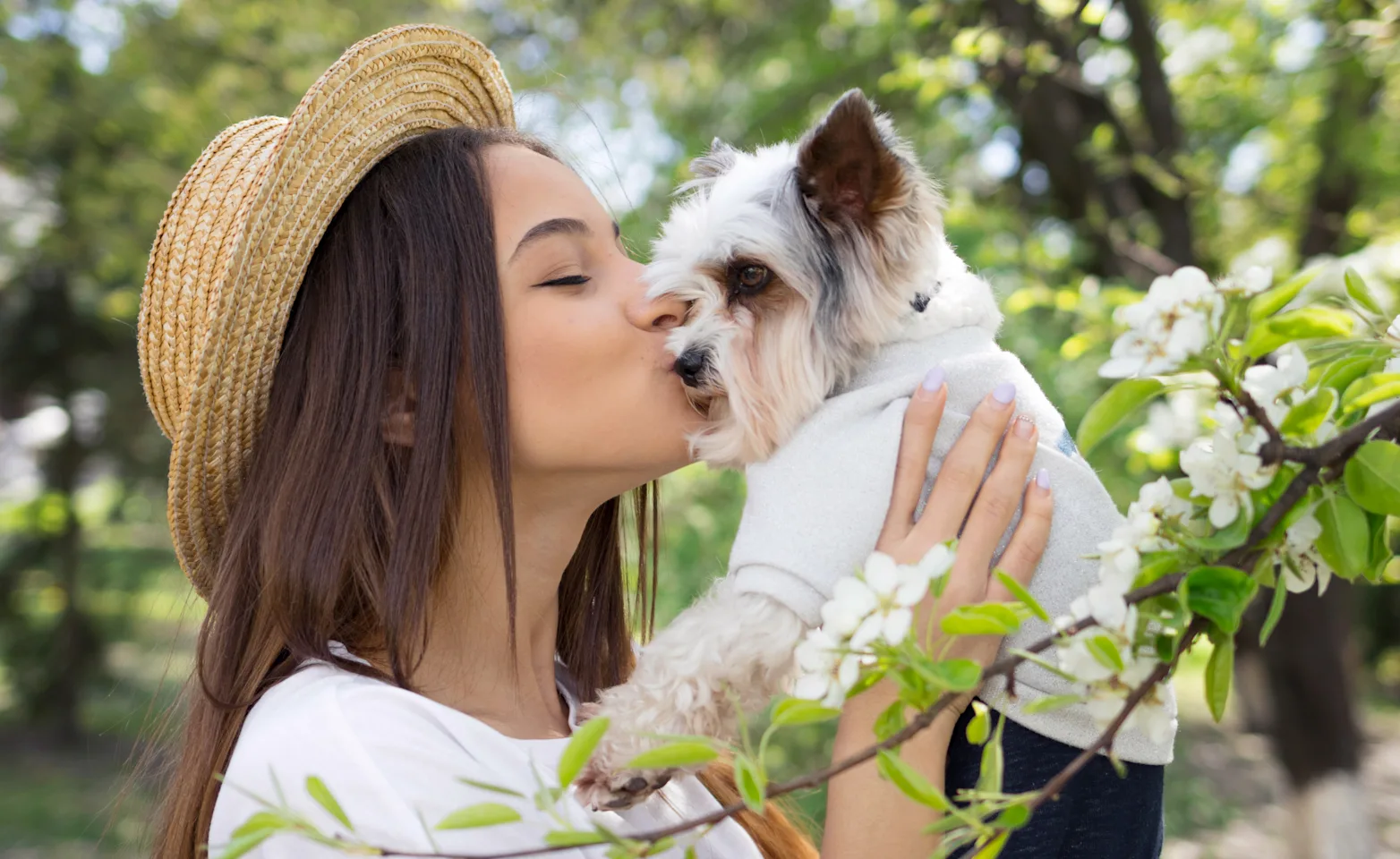
What Not To Do
Never discipline or punish your puppy after-the-fact. If you discover a chewed item even minutes after he’s chewed it, you’re too late to administer a correction. Animals associate punishment with what they’re doing at the time they’re being punished. Dog and puppies cannot reason that “I tore up those shoes an hour ago and that’s why I’m being scolded now.” Some people believe this is what a puppy is thinking because he runs and hides or because he “looks guilty.”
